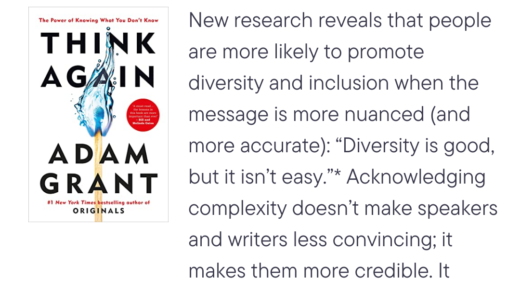Suppose people suspect that others know something (perhaps the train door will open at a particular spot). They would then join the crowd (perhaps at the cost of ignoring their own information that the train is likely to stop somewhere else). But that would make the crowd bigger, and so the next person coming along would see an even bigger crowd and be even more likely to think this conveyed useful information. They might also join the crowd, for the same reason. In other words, what looks like conformity could be the outcome of rational decision making by many individuals with no interest in conforming, but who believe others might have better information than they. He called it a “simple model of herd behavior.” The fact that each individual decision is rational does not make the outcome desirable. Herd behavior generates informational cascades: the information on which the first people base their decision will have an outsized influence on what all the others believe. A recent experiment nicely demonstrates the power of random first moves to generate cascades. Researchers worked with a website that aggregates advice on restaurants and other services. Users post comments, and other users add an up- or down-vote. In their experiment, the website randomly chose a small fraction of comments and gave them one artificial up-vote as soon as they were posted. They also randomly chose another small batch to get a down-vote. The positive up-vote significantly increased the probability that the next user also gave an up-vote, by 32 percent. After five months, the comments that had received one single artificial up-vote at the beginning were much more likely to get a top grade than those that got a single down-vote. The influence of that original nudge persisted and grew, despite the fact that the posts had been viewed a million times. Fads, therefore, are not necessarily inconsistent with the paradigm of standard preferences. Even when our preferences do not directly depend on what other people do, the behavior of others can convey a signal that alters our beliefs and our behavior. In the absence of a strong reason to believe otherwise, I might infer from other people’s actions that a tattoo does look good, that drinking banana juice will make me slim, and that this harmless-looking Mexican man is really a rapist at heart.
A common heuristic that we usually rely on is on social cues, where we base our preferences on what others like. It also explains how one choosing to queue at a food stall that already has a long queue as a rational choice. After all, we are just playing the odds and if the odds are such that someone else likes it enough to queue for it, it is probably good.
But such herd behaviour, while probably rational on an individual basis and most of the items, might lead to irrational outcomes and strongly held preferences which were simply influenced by what one was first exposed to. One’s political opinions can be easily generated by “the herd”.
The idea that each one of us will have a fixed set of preferences (as in economic theory) might not be true when we are so easily susceptible to social suggestions. You might not really prefer that chicken rice with the long ass queue to the other stall without the queue to subconsciously influence you.



